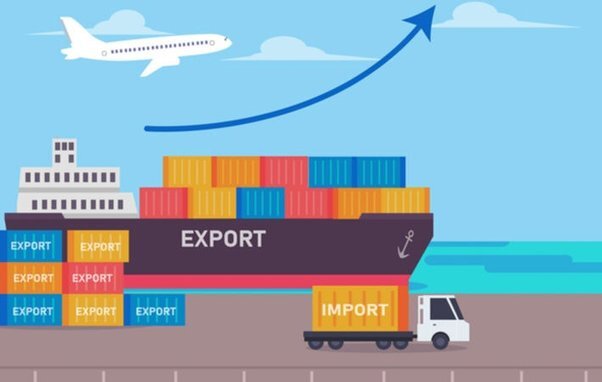
In today’s interconnected world, international trade plays a vital role in the global economy. Businesses engaging in import-export activities have the opportunity to tap into new markets, expand their customer base, and drive growth. However, venturing into the import-export business requires careful planning, research, and adherence to best practices. In this article, we will explore essential tips and hints to help you navigate the complexities of international trade successfully.
Introduction
Before diving into the specifics, it’s crucial to understand the fundamentals of the import-export business. Import-export refers to the exchange of goods and services across international borders. This practice allows businesses to source products from overseas suppliers or sell their goods to foreign markets. The benefits of engaging in international trade are vast, including increased revenue, access to a wider range of products, and exposure to diverse cultures.
Understanding the Import-Export Business
To excel in international trade, it’s essential to grasp the intricacies involved. Start by familiarizing yourself with the definition of import-export and the significance it holds in the global marketplace. Recognise that import-export activities can be subject to various challenges, such as language barriers, regulatory compliance, and logistical complexities. By understanding these factors, you can better prepare for the journey ahead.
Researching International Markets
Before entering a new market, thorough research is paramount. Identify your target markets based on factors such as demand, competition, and regulatory environment. Conduct comprehensive market research to gain insights into consumer preferences, local trends, and cultural nuances. By analyzing the competition, you can develop a unique selling proposition and tailor your offerings to meet the specific needs of your target audience.
Developing a Solid Export Strategy
To ensure success in exporting goods, it’s crucial to develop a well-defined export strategy. Start by setting clear objectives for your export endeavors. Identify which products or services hold export potential based on market research. Determine pricing strategies, payment terms, and contractual obligations. Additionally, familiarize yourself with export regulations and compliance requirements to avoid legal pitfalls.
Finding Reliable Suppliers or Buyers
Finding trustworthy suppliers or buyers is essential for smooth import-export operations. Research potential suppliers or buyers in your target market and verify their credibility. Evaluate their track record, financial stability, and reputation in the industry. Negotiate favorable terms that benefit both parties, ensuring a win-win situation.
Logistics and Transportation
Efficient logistics and transportation are crucial components of successful international trade. Choose the appropriate mode of transportation based on factors like cost, transit time, and the nature of the goods being transported. Familiarize yourself with customs procedures, documentation requirements, and regulations specific to each country. Prioritise product safety and security during transit to mitigate risks.
Dealing with International Trade Regulations
Navigating international trade regulations can be complex, but it’s a necessary part of the process. Understand the import duties, taxes, and tariffs applicable to your goods in various countries. Stay informed about trade agreements and preferential trade arrangements that can provide competitive advantages. Manage legal and cultural differences effectively to avoid misunderstandings and disputes.
Managing Risks and Insurance
Risk management is vital in import-export operations. Identify potential risks such as political instability, natural disasters, or currency fluctuations. Develop risk mitigation strategies and consider appropriate insurance coverage to protect your business against unforeseen events that may disrupt your supply chain or impact profitability.
Financing and Payment Options
Navigating the financial aspects of international trade is crucial. Explore various payment methods, such as letters of credit, international wire transfers, or online payment platforms. Manage currency exchange effectively to minimize the impact of fluctuating exchange rates. Additionally, utilize trade financing tools such as export credit insurance or factoring to enhance your cash flow and mitigate credit risks.
Building Strong Partnerships
Building strong partnerships is invaluable in the import-export business. Network with industry professionals, attend trade shows, and explore collaborations with freight forwarders and agents. Establishing mutually beneficial relationships can provide access to new markets, expertise, and logistical support.
Embracing Technology and Digital Solutions
In today’s digital era, leveraging technology is essential for efficient import-export operations. Utilize online marketplaces and e-commerce platforms to connect with buyers and suppliers globally. Implement supply chain management systems to streamline processes and enhance visibility. Embracing technology enables you to automate tasks, reduce costs, and improve overall efficiency.
Dealing with Cultural and Language Barriers
When engaging in international trade, cultural and language barriers may arise. Take the time to understand the cultural nuances of your target markets and adapt your business practices accordingly. Overcome language barriers by hiring translators or utilizing language translation tools. Effective communication builds trust and fosters strong business relationships.
Ensuring Compliance with Intellectual Property Rights
Protecting intellectual property is crucial when engaging in international trade. Understand the laws and regulations related to intellectual property rights in different countries. Take appropriate measures to safeguard your inventions, trademarks, copyrights, and trade secrets. Enforce your rights internationally to prevent unauthorized use or infringement.
Adapting to Market Changes and Trends
The global marketplace is dynamic, with ever-changing economic conditions and emerging trends. Stay informed about market changes, trade policies, and geopolitical developments that may impact your import-export business. Embrace sustainability practices and eco-friendly initiatives to align with growing consumer demand for environmentally conscious products and services.
Conclusion
Successful international trade requires careful planning, market research, and adherence to best practices. By understanding the nuances of import-export operations, conducting thorough research, building strong partnerships, and embracing technology, you can navigate the complexities of international trade and unlock new opportunities for business growth.
Frequently Asked Questions
- How do I identify the right target market for my export business?
- What are the key factors to consider when choosing reliable suppliers or buyers?
- How can I ensure compliance with import-export regulations?
- What are the common risks in international trade and how can I manage them effectively?
- How can technology and digital solutions enhance my import-export operations?
For more information and assistance with your import-export needs, contact Moving Solutions at 1300 972 040 or email us at bookings@movingsolutions.com.au.
